|
Jessica Piora & Yuichi Kobayashi
Atera Keikoku: An enchanted valley in Southern Nagano

Table of Contents
The emerald green river
If you enjoy walking, love rivers and forests, and want to visit a spectacular place in Southern Nagano, Atera Keikoku is the right place for you. Atera river looks beautiful all year round regardless of the weather. That is because the rocky riverbed made of white volcanic rocks gives that beautiful emerald green hue to the water.
 The river looks beautiful!
The river looks beautiful!
It is even more spectacular than it looks in the pictures. Many people enjoy visiting the valley in autumn when they can walk through the forest and enjoy the red autumn leaves. Summer is a great season to visit the valley for those who enjoy bathing in refreshing river water.
Directions
From Nagoya Station, take the Chuo Line for Matsumoto and get off at Nojiri. From Nojiri station to the Atera Bridge, which marks the beginning of the Atera ravine, it is a 20-minute walk.
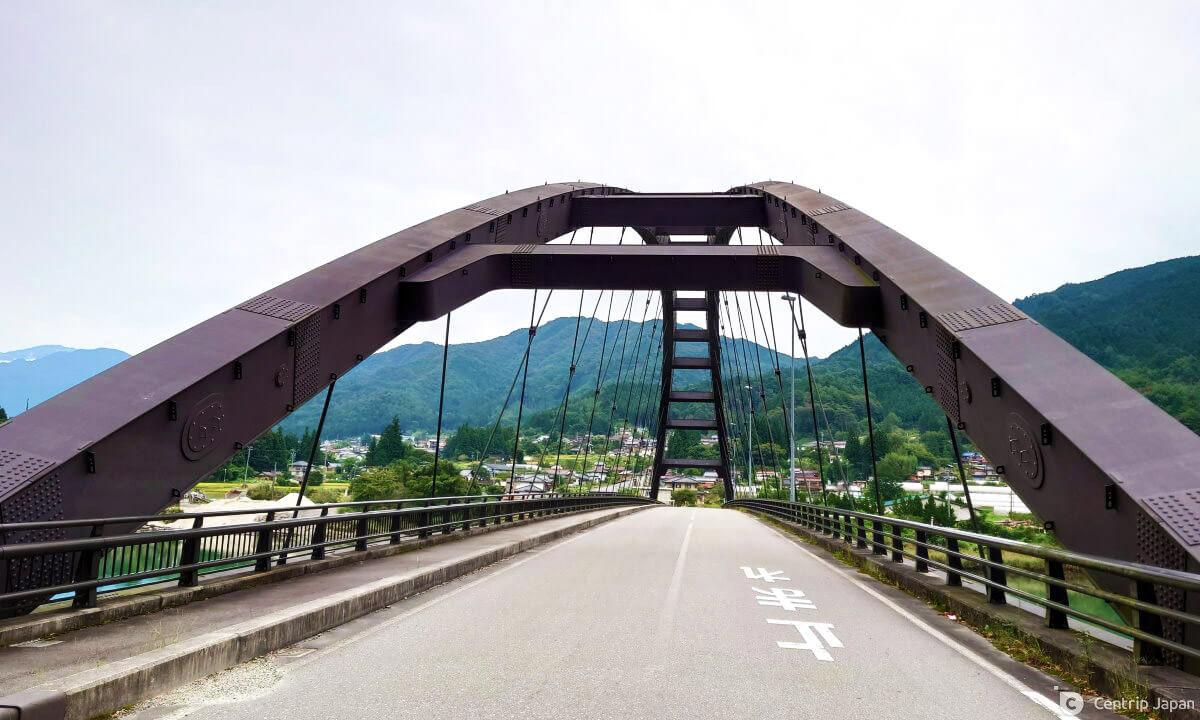 Atera Bridge
Atera Bridge
The trail from the gate to the campsite is 6.3km long, but you can enjoy the valley even if you do not walk the entire length.
 Welcome to Atera!
Welcome to Atera!
Make sure you take the time you need to enjoy your walk and stay hydrated.
Enjoying the valley
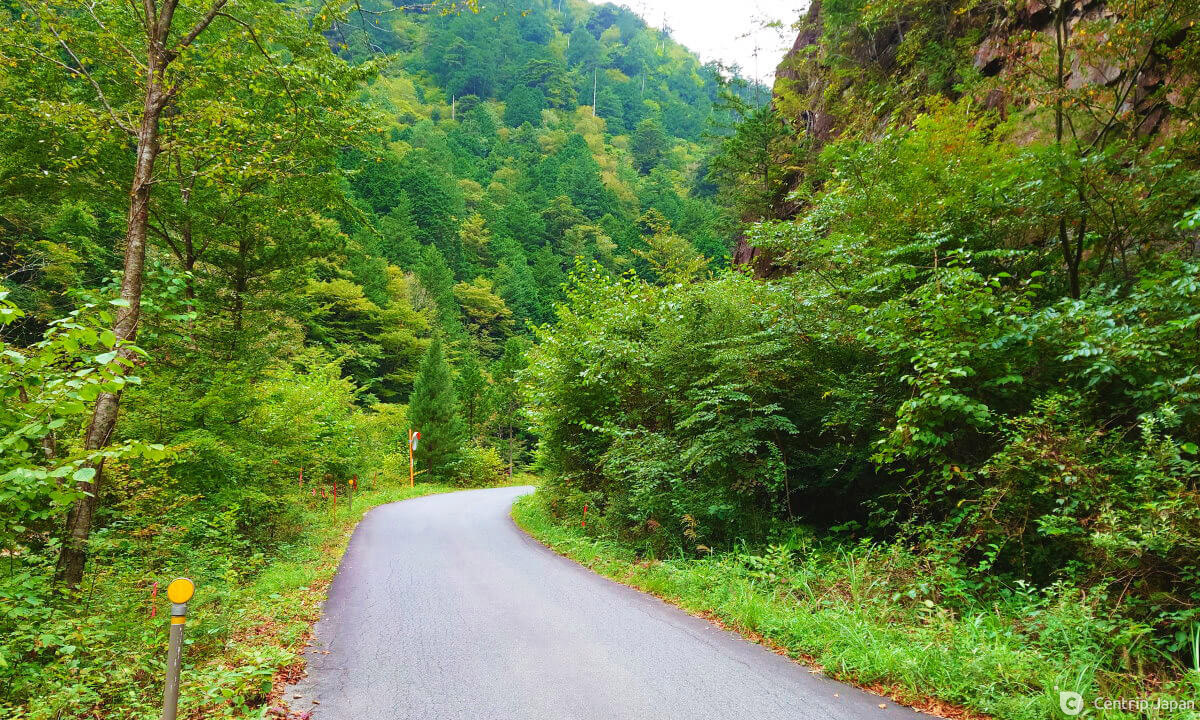 The trail
The trail
If it is summer, you can stop along the way and enjoy a bath in the river. In autumn, you can take a walk and stop to enjoy all the beautiful trees, pools, and fountains along the way.
Senjo-Iwa
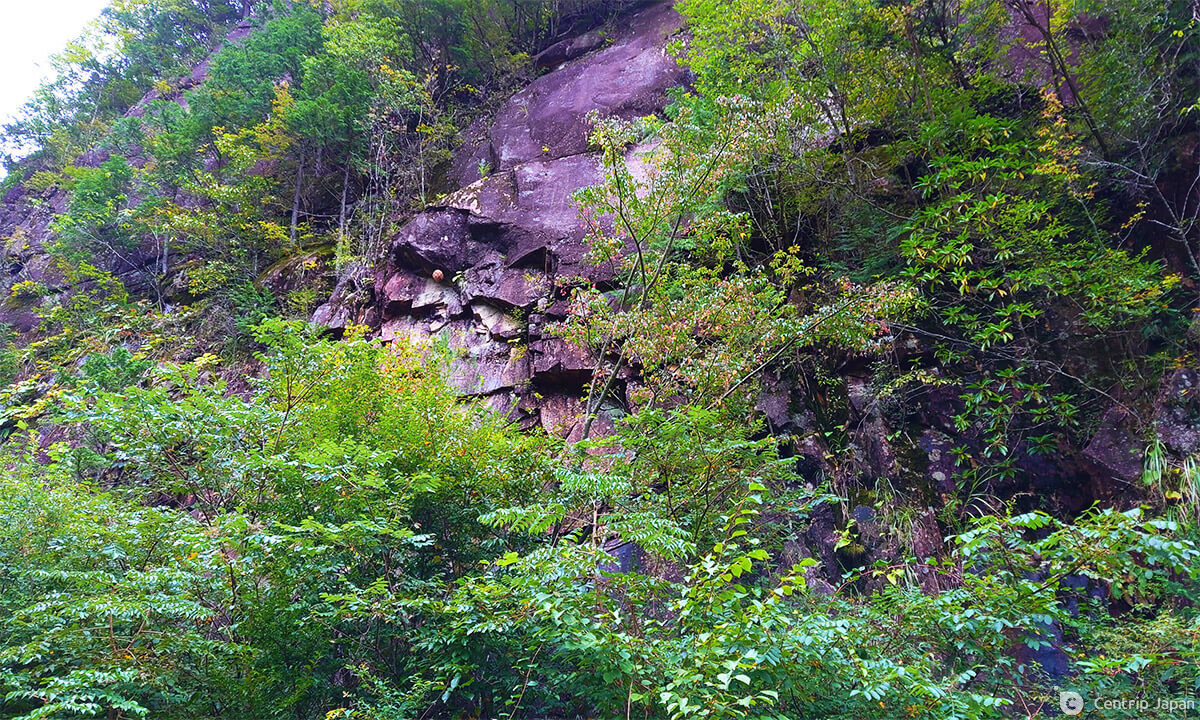 The sound-effect rock!
The sound-effect rock!
The Senjo-Iwa is a huge rock, as big as 1000 tatami (Senjo means 1000 tatami, hence the name). This gigantic rock creates a particular sound effect. If you stand in front of the rock, it sounds like a river is flowing over your head!
Remains of the forest railway
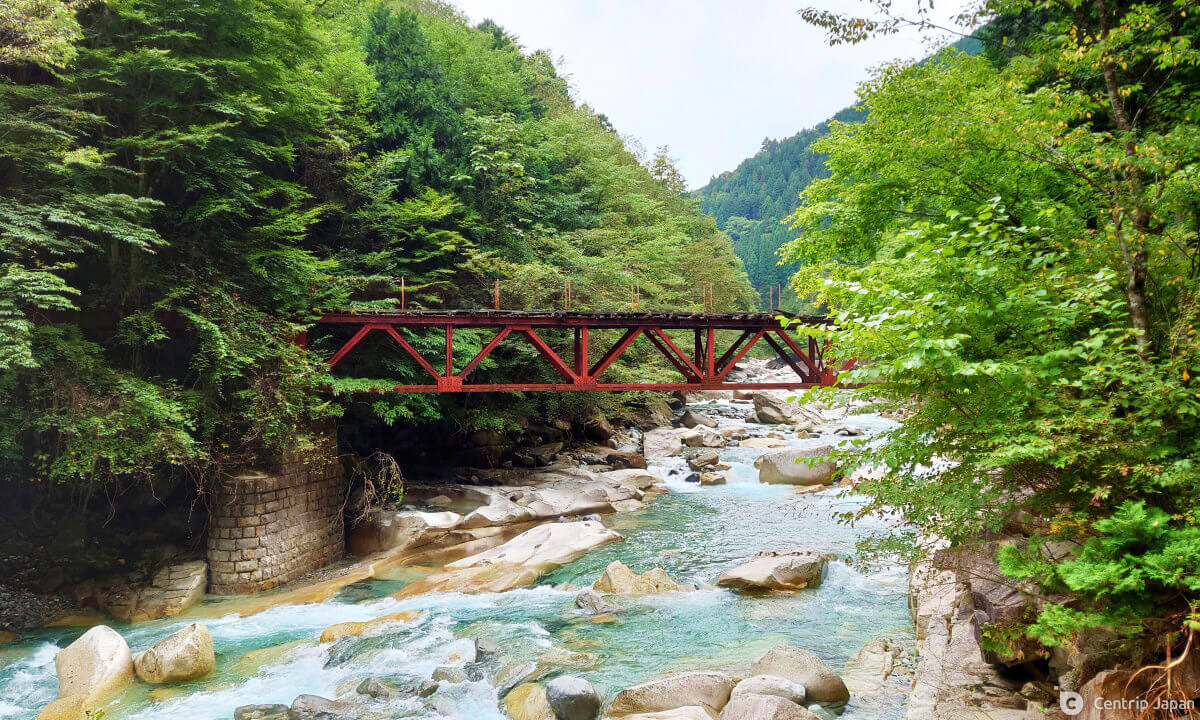 The forest railway
The forest railway
The forest railway, constructed in 1915, was used to transport wood. As of 1966, the railway is no longer in use, but you can still see its remains in the ravine. Right below the railway, there is a rock that has a peculiar pothole. They say it looks like a rice paddy.
A waterfall that only appears when it rains
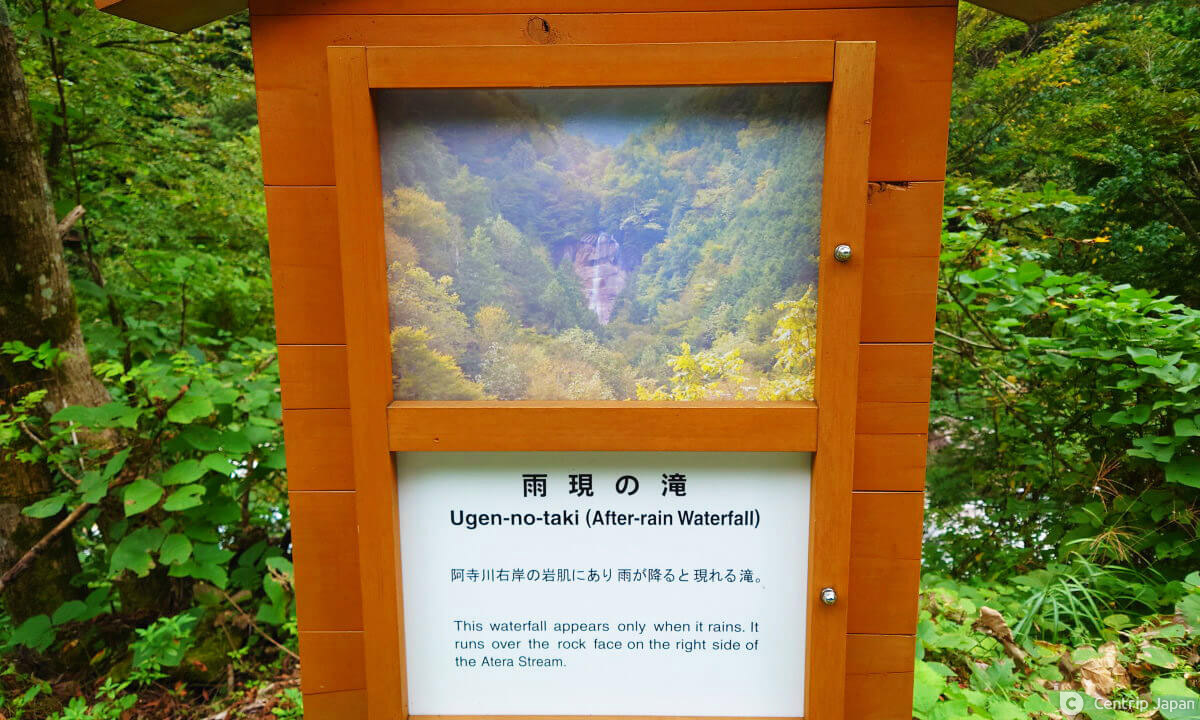 You can only see the waterfall when it rains, but here is a picture of the picture
You can only see the waterfall when it rains, but here is a picture of the picture
Ugen no Taki, or the after-rain waterfall. On a sunny day, it is not visible, and visiting on a rainy day is not recommended. But in case you do…
Pools with interesting shapes
There are many beautiful water pools, each with a name and a story.
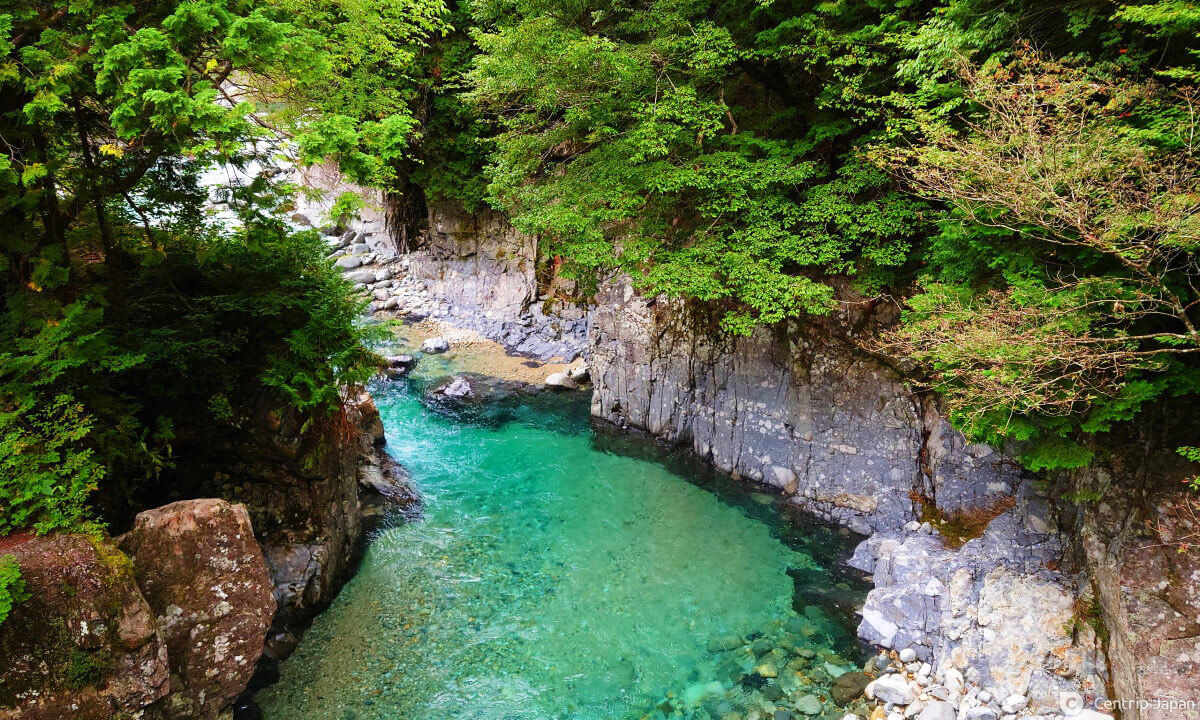 Inugaeri no Fuchi
Inugaeri no Fuchi
This is the pool dedicated to the dogs that come back, or Inugaeri no Fuchi. Long ago, hunters would come to the valley with their dogs, but this cliff was too steep for the dogs to walk, so the dogs and the hunters could not proceed from here and had to go back.
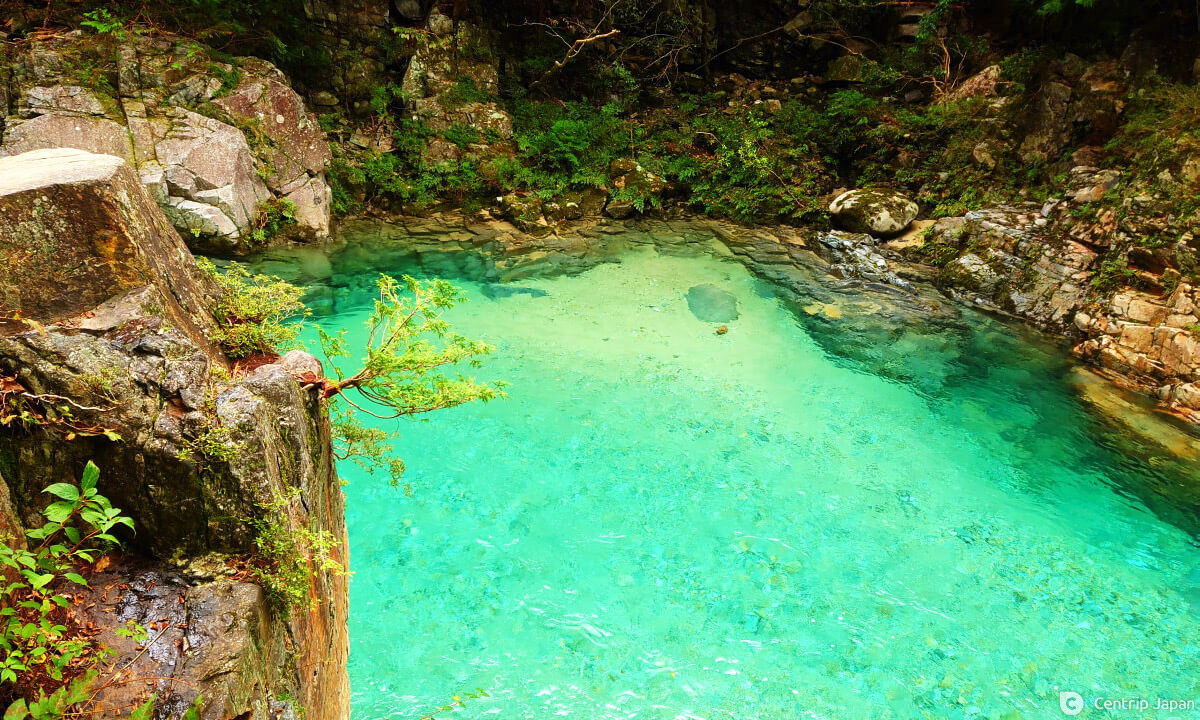 Kuma ga Fuchi
Kuma ga Fuchi
This is Kuma ga Fuchi. This pool used to be particularly loved by local bears, that were often seen walking around or bathing in it. As a friendly reminder, this is a mountainous area and home to bears so please take precautions before visiting.
Kitsune ga Fuchi and Tanuki ga Fuchi.
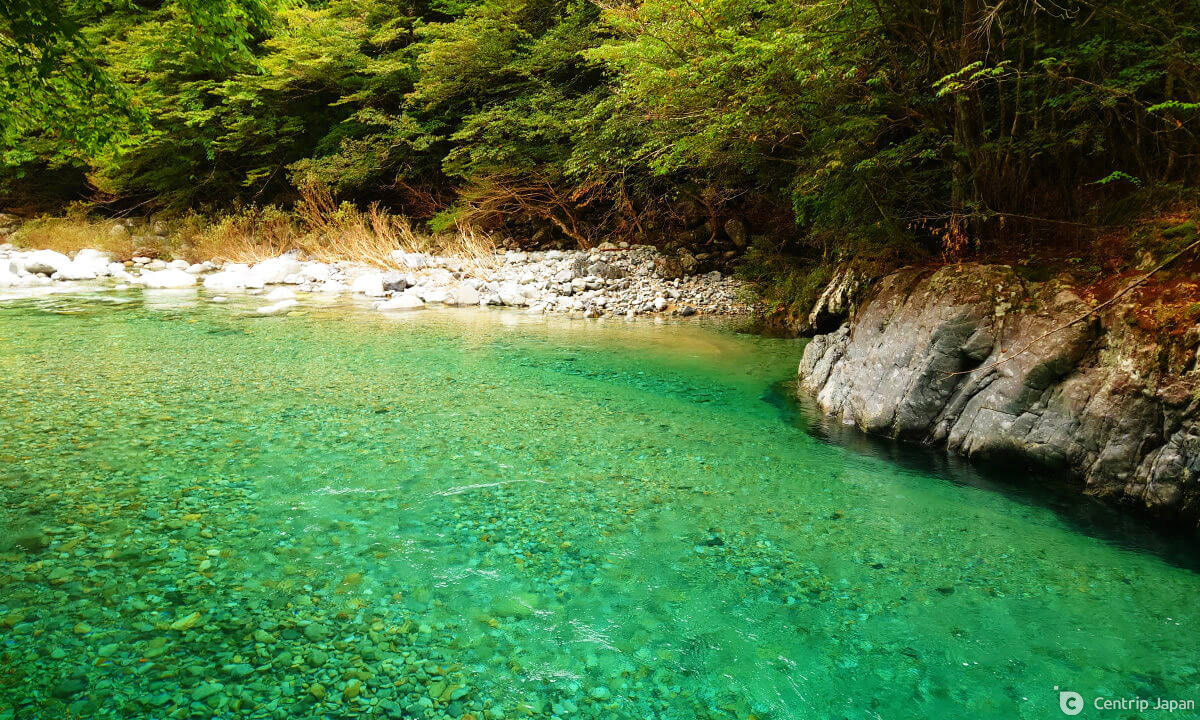 Kitsune ga Fuchi and Tanuki ga Fuchi
Kitsune ga Fuchi and Tanuki ga Fuchi
These two pools were preferred by foxes and raccoon dogs. According to local fables, these two creatures disguised themselves as humans to deceive the locals. According to the stories, they would use this pool as a mirror to check their appearance.
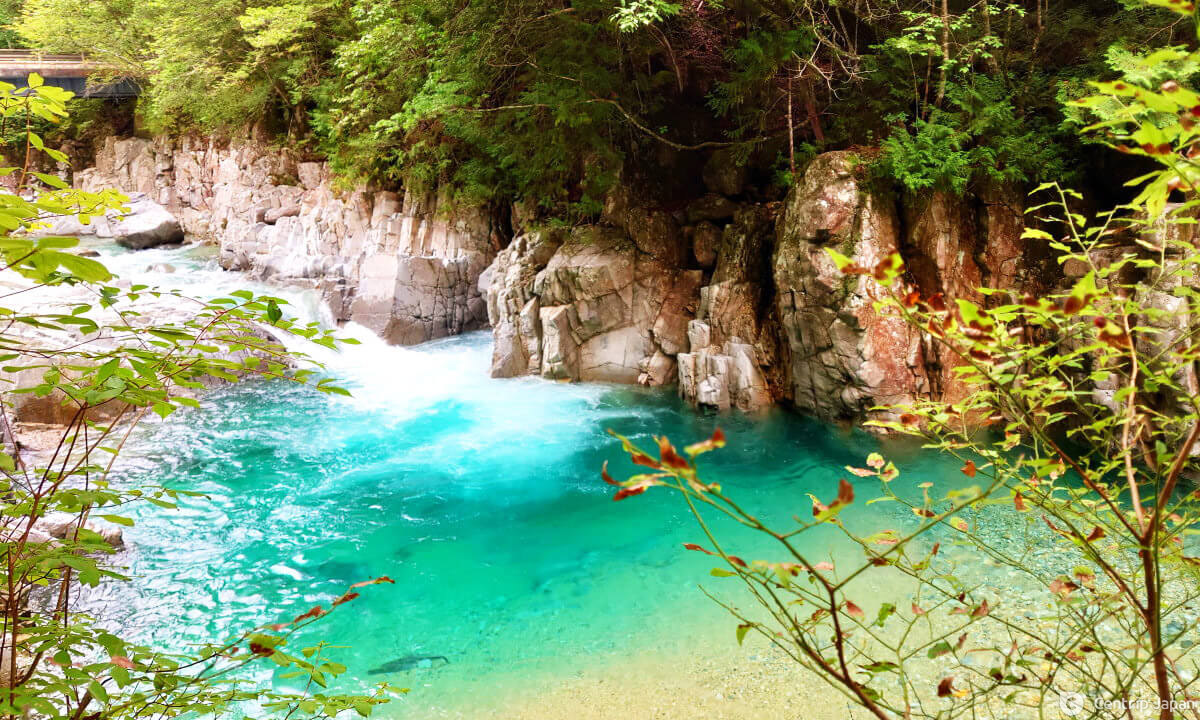 Ushi ga Fuchi
Ushi ga Fuchi
This is Ushi ga Fuchi, the Cow Pool. This is also the deepest pool in the valley, and the color of the water is impressive.
Waterfalls
The spiral waterfall
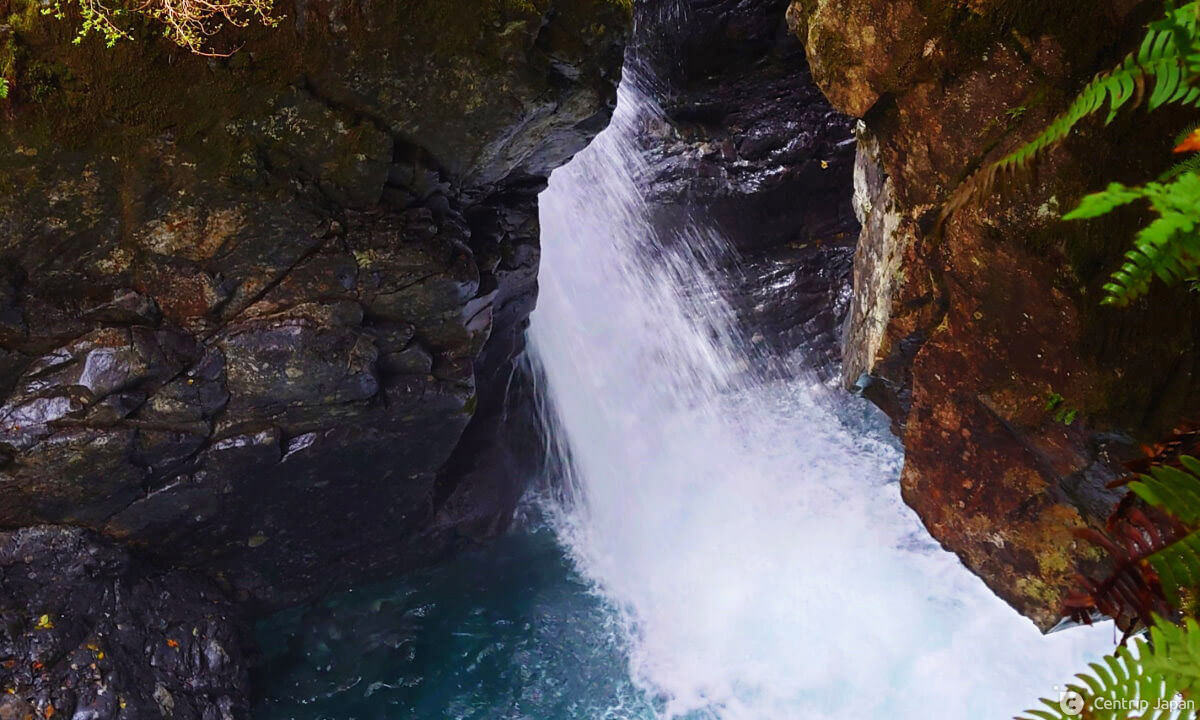 The spiral waterfall
The spiral waterfall
Out of the many waterfalls, this one is of particular interest. It runs down in the shape of an S and ends up forming a spiral.
The six-step waterfall
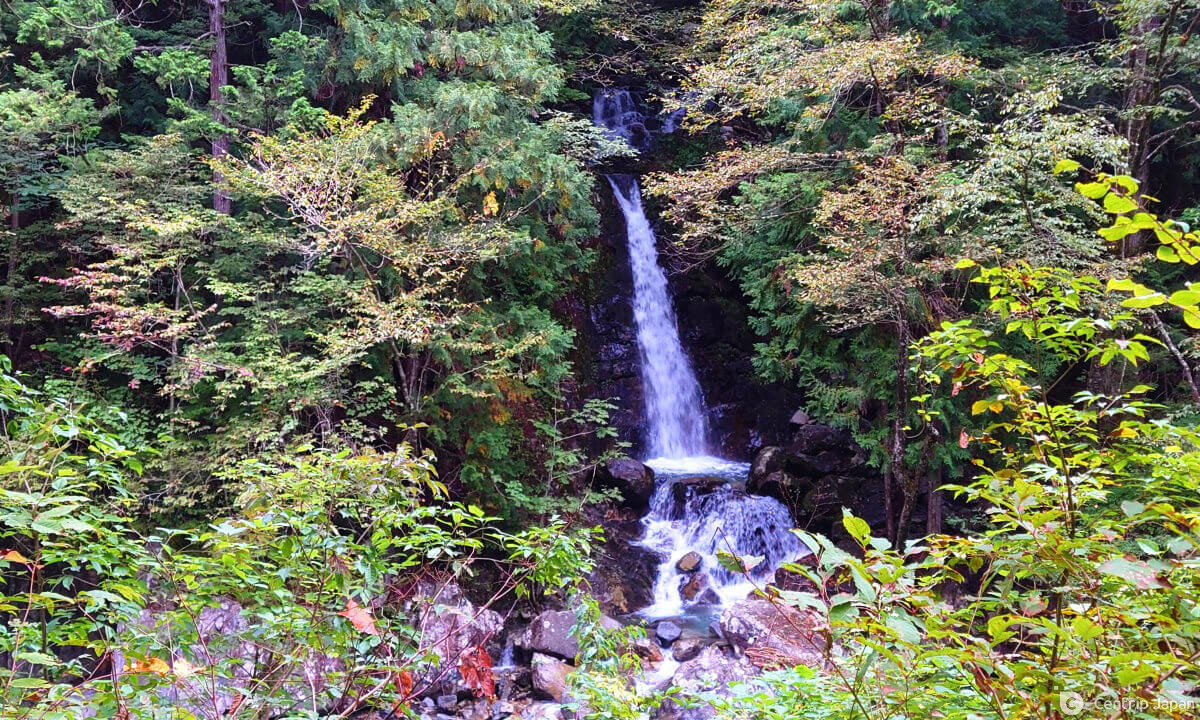 Rokudan no Taki
Rokudan no Taki
This is a beautiful six-step waterfall among the trees. It is called Rokudan no Taki.
The Poem Stone
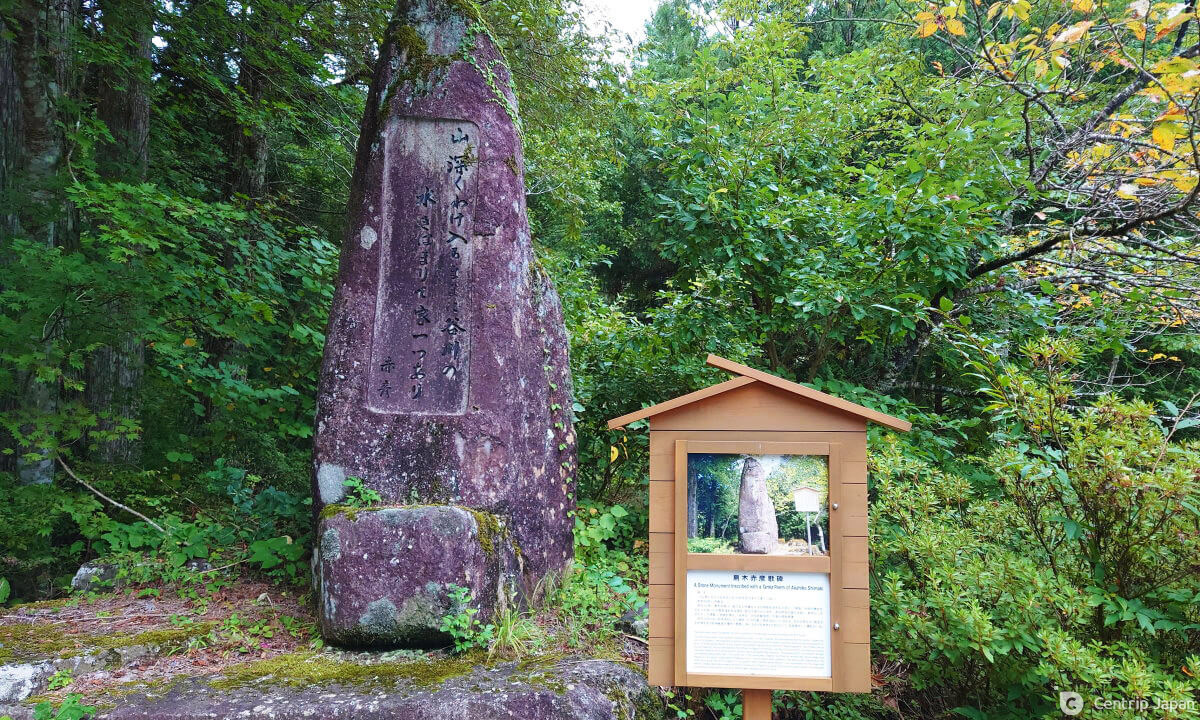 A tanka poem
A tanka poem
On this stone, you can read a tanka poem (a thirty-one-syllable poem). It was written by Akahiko Shimaki in 1907, in praise of Atera Valley, where he and his master stopped to rest on their way from Nakatsugawa to Shiojiri.
The poem reads:
“Go deeper into the mountains,
the stream gets narrower,
and there stands a house.”
The Akahiko Suspension Bridge
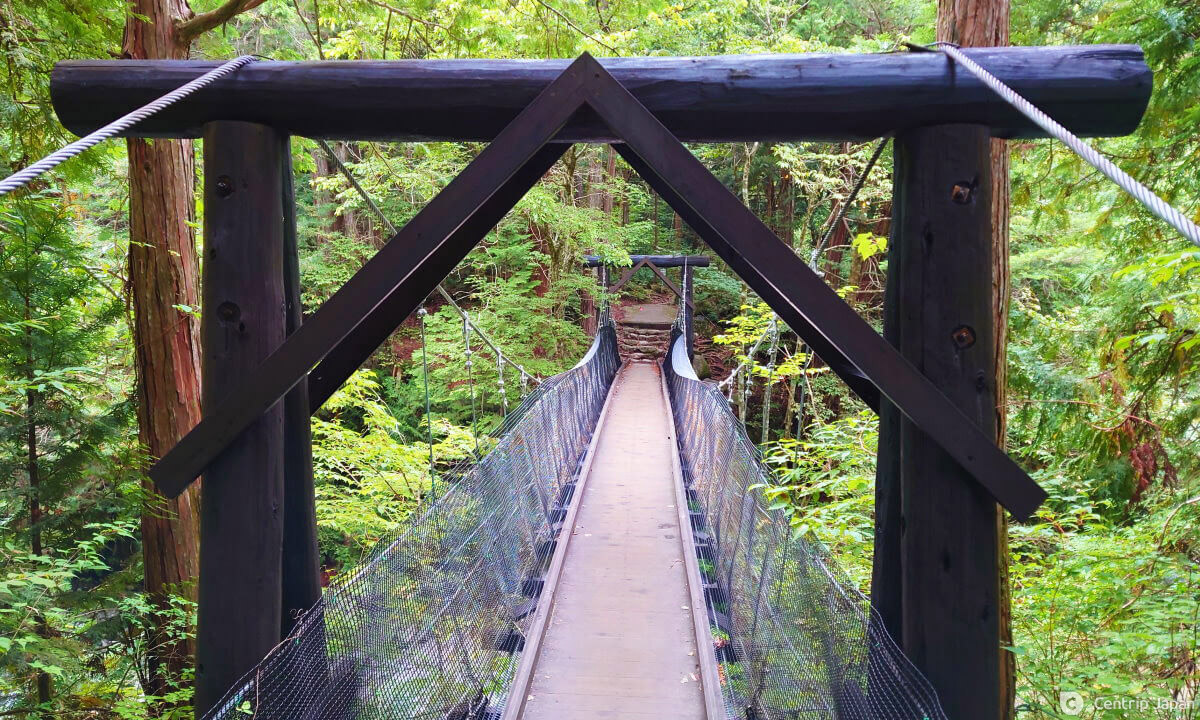 The suspension bridge
The suspension bridge
This bridge was renovated in 2007 and is safe to walk. If you take the suspension bridge, it will lead you to a one-hour trail through the forest.
Pretty face water
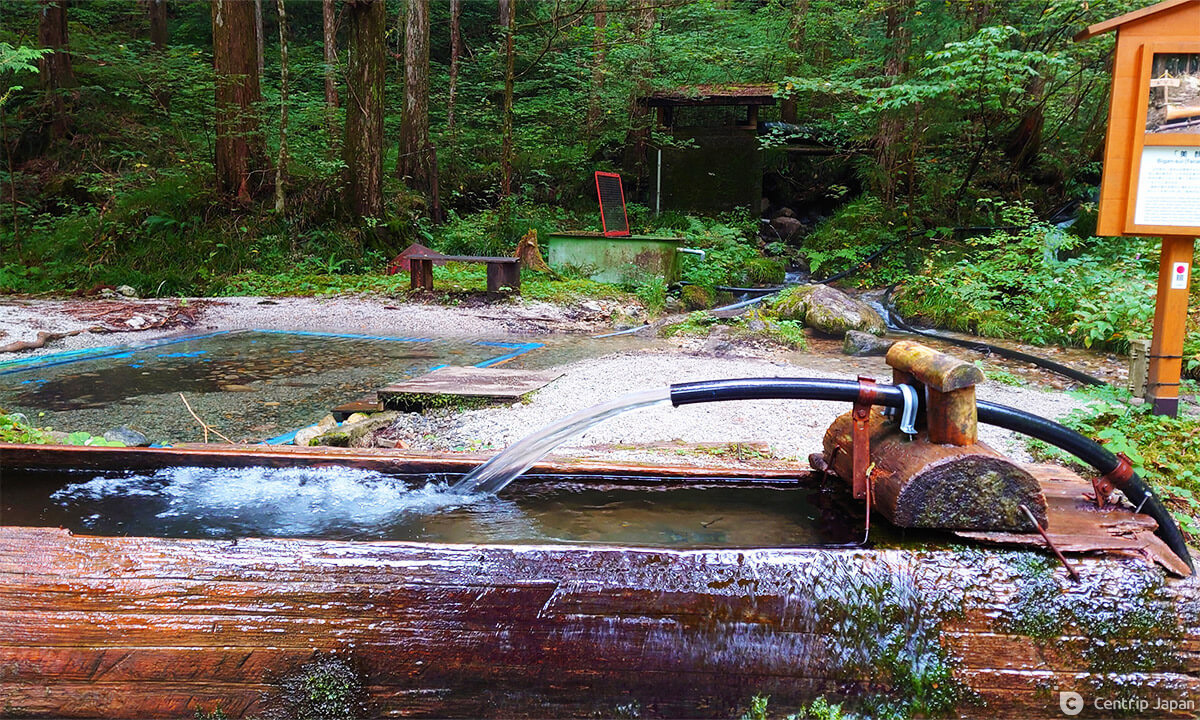 A fountain of pretty face water
A fountain of pretty face water
At the end of the 6.3 km trail, you will find a little fountain. Its water is called bigansui, or pretty face water. It was named pretty face water because it is rumored that women who wash their face with this water every day and night will get beautiful, whiter skin. While this claim may be dubious, what is certain is that this water is one of the Best Water in Shinshu, and was awarded this title in 2010.
The campsite
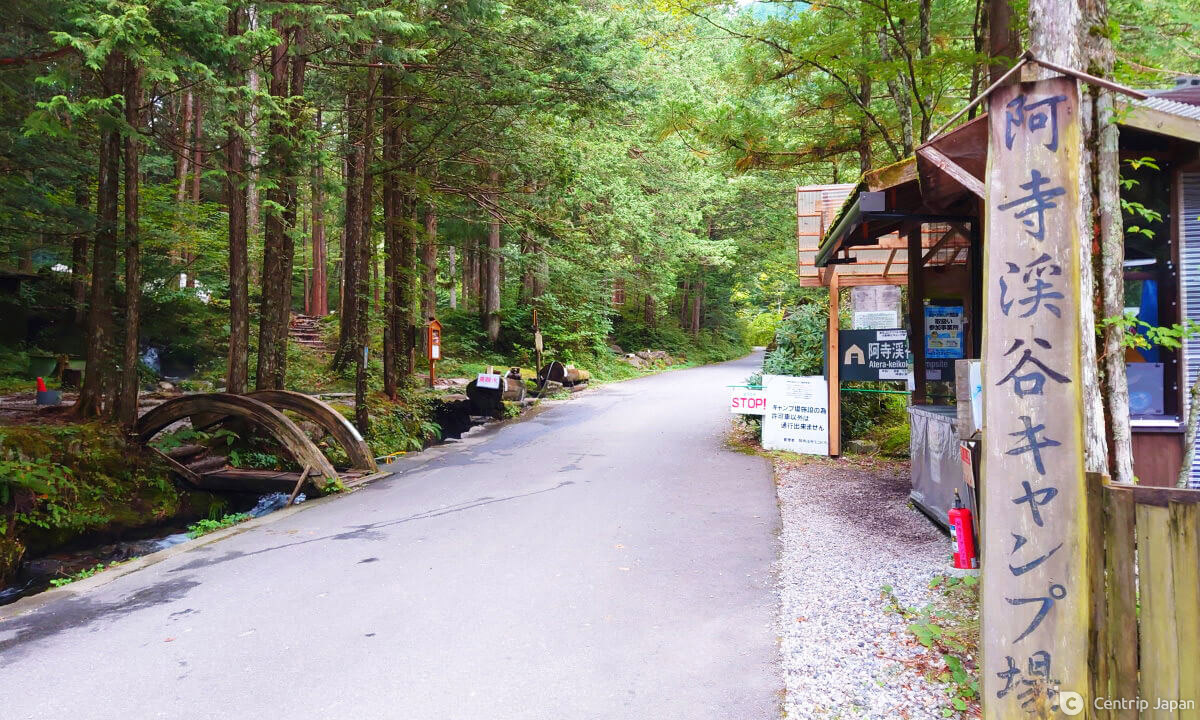 You made it!
You made it!
If you made it to the pretty face water, congratulations! It means you have reached the end of the trail and the campsite. This is a very nice place to spend the afternoon or the night if you enjoy camping. The fee to spend the night at the campsite is ¥3000 – ¥5000 per night. The entrance fee is ¥600 for adults and ¥200 for elementary school children.
Parking your car requires an extra fee of ¥1000 – ¥3000.
You can rent a variety of items (tables, chairs, gas burners, even hammocks), but make sure you check beforehand as currently the rental service for tents is suspended.
Things to keep in mind
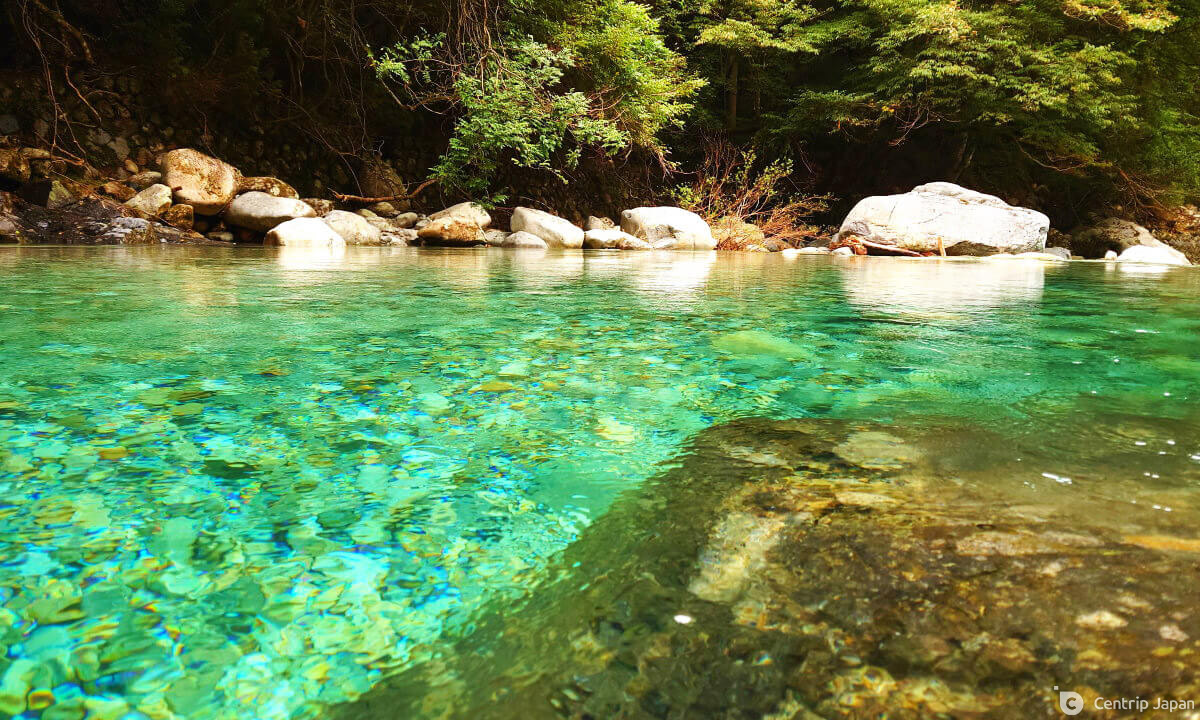 The emerald water
The emerald water
This is a 6.3-kilometer trail in the mountains (including the walk from Nojiri Station). It is recommended that you make sure you have proper hiking shoes, prepare for the shifting temperatures, and carry the food and drinks you need (you will not be able to find any otherwise). There is a chance of seeing bears, so take precautions. Make sure you respect the environment and do not litter.
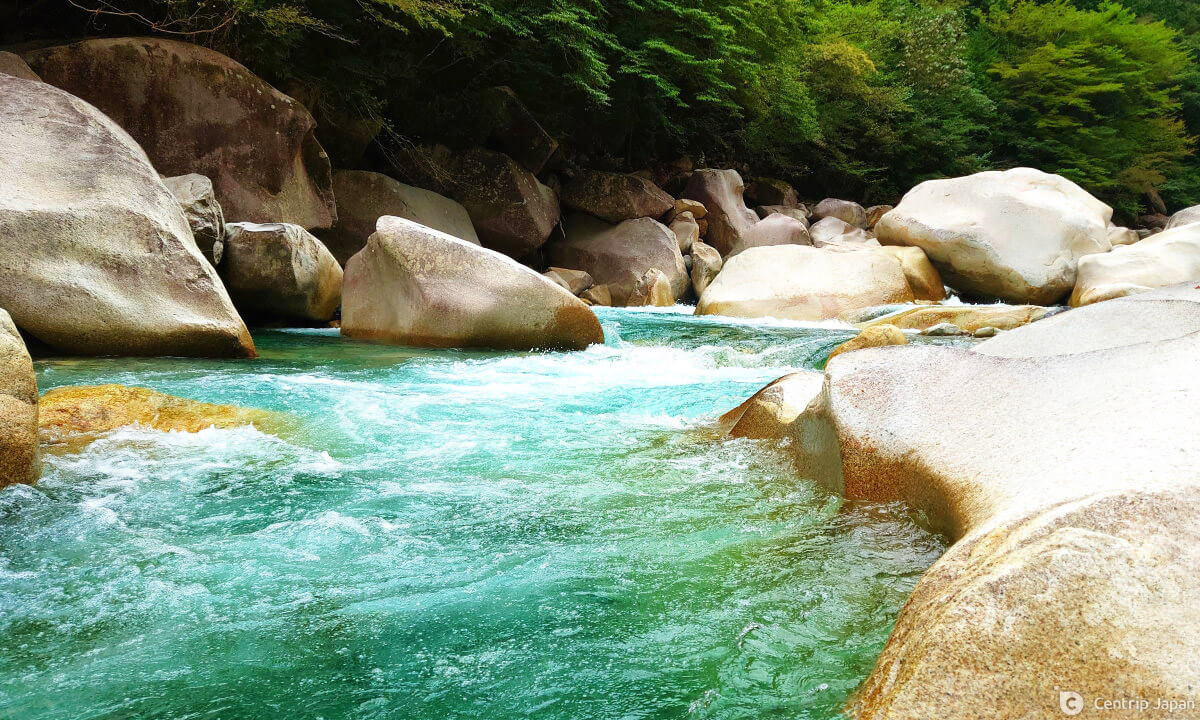 It's amazing!
It's amazing!
I hope you have a delightful experience!
Click here to get the latest information on Central Japan.Centrip Japan - Nagoya and Chubu Information

